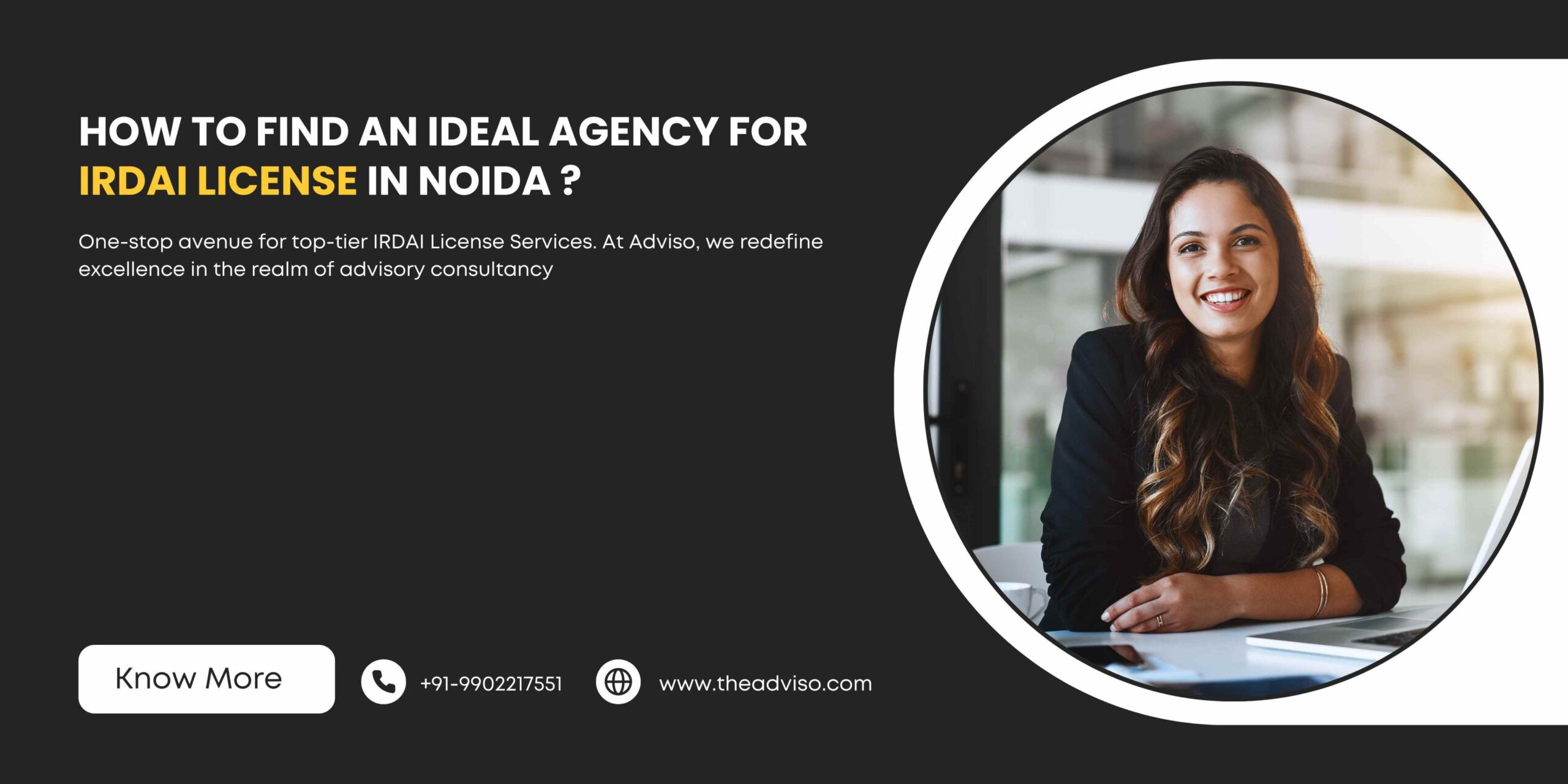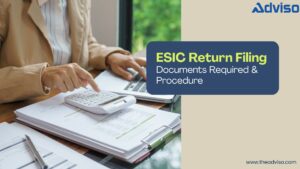IRDAI License
Securing an IRDAI license involves addressing a compliance-intensive process brimming with strict norms. That’s where a seasoned agency can make a huge difference. From comprehending norms and addressing training requirements to paperwork, having an expert agency ensures that you get the right support every step of the way. They made licensing easy and also helped with operational endevours, offering comprehensive and holistic support. Let’s delve into the nitty gritty of finding an ideal partner for securing an IRDAI license. But before we do that, let’s focus on some basic information. So let’s get started.
Types of Licenses Granted by IRDAI
The Insurance Regulatory and Development Authority of India (IRDAI) offers a multitude of licenses to entities seeking to operate in the insurance sector. These licenses are classified based on the entities’ roles and type of insurance business. Some common IRDAI licenses that one can secure include:
- Life Insurance License – For companies offering life insurance products, including term, endowment, and annuities.
- General Insurance License – For companies offering non-life insurance products, such as health, motor, property, and travel insurance.
- Health Insurance License – Specifically for companies that focus solely on health insurance products.
- Reinsurance License – For companies that provide reinsurance services, helping insurers share the risk they take by insuring others.
- Insurance Broker License – For entities that act as intermediaries between insurers and policyholders, guiding them on products and facilitating policies. This category is further divided into three types
- Direct Broker – Engages directly with policyholders for both life and general insurance products.
- Reinsurance Broker – Specializes in reinsurance products.
- Composite Broker – Engages in both direct and reinsurance broking.
6. Corporate Agent License – For entities that act as agents for one or more insurance companies, distributing their products.
7. Third-Party Administrator (TPA) License – For entities that handle claims processing and related services for health insurers.
8. Surveyor and Loss Assessor License – For individuals or companies responsible for assessing and investigating claims for general insurance.
Check out our stories: 7 Steps To Get Insurance Broker License in India
Common Paperwork Required to Secure IRDAI License
The table below reflects the common dossiers required to secure the IRDAI license:
| License Type | Required Documents |
| Life Insurance License | Certificate of Incorporation, Business Plan, Financial Statements, Memorandum of Association (MOA), Articles of Association (AOA), Net Worth Certificate, Director Details, Insurance Expertise Documents |
| General Insurance License | Certificate of Incorporation, Business Plan, Financial Statements, MOA, AOA, Net Worth Certificate, Director Details, Insurance Expertise Documents |
| Health Insurance License | Certificate of Incorporation, Business Plan, Financial Statements, MOA, AOA, Net Worth Certificate, Director Details, Health Insurance Expertise |
| Reinsurance License | Certificate of Incorporation, Business Plan, Financial Statements, MOA, AOA, Net Worth Certificate, Director Details, Reinsurance Agreements, Risk Management Strategy |
| Insurance Broker License | Certificate of Incorporation, MOA, AOA, Financial Statements, Net Worth Certificate, Director Details, Broker Experience Documents |
| Direct Broker | Business Plan, Evidence of Client Handling Experience, Director Details |
| Reinsurance Broker | Business Plan, Reinsurance Experience, Client Agreements, Risk Management Strategy |
| Composite Broker | Business Plan, Reinsurance and Direct Broker Experience, Client Agreements, Risk Management Strategy |
| Corporate Agent License | Certificate of Incorporation, MOA, AOA, Business Plan, Financial Statements, Net Worth Certificate, Director Details, Agency Agreement(s) with Insurers |
| Third-Party Administrator (TPA) | Certificate of Incorporation, Financial Statements, Net Worth Certificate, MOA, AOA, Director Details, Agreements with Insurers, Claims Processing Systems Information, Infrastructure Proof (office, technology, manpower, etc.) |
| Surveyor and Loss Assessor License | Certificate of Incorporation (for companies), Professional Qualification (for individuals), MOA, AOA, Financial Statements, Net Worth Certificate, Director Details, Relevant Experience and Training Records |
Generalized Process to Secure an IRDAI License
The steps involved in an IRDAI license process are as follows. Make sure to keep the documents intact as they play an instrumental role in the approval.
Step 1: Identify License Type
The first step involves picking up the right verticals i.e. license types. To ease the blow, recognize your expertise and experience. Identify your strengths and pitfalls before you choose one of the niches. Pay close attention to regulatory requirements as they can serve as the biggest hurdle. If possible, contact a seasoned agency like Adviso for extensive support.
Step 2: Meet Eligibility Requirements
Ensure that your company adheres to the IRDAI’s requirements for a given license. You can visit the authority’s portal or delve into specific legislation to learn about industry-specific norms defining registration and operational requirements. Typically, your focus should be on the following when scouting eligibility criteria for a specific IRDAI license:
- Financial qualifications
- Company structure
- Net worth requirements
- Fit-and-proper criteria for directors and key personnel.
Step 3: Prepare Necessary Documentation
Documents are paramount and thus play a key role in the IRDAI license process. IRDAI vets dossiers thoroughly for compliance and accuracy. Any misinformation or error could lead to events like application cancellation or extended delays. Therefore, extra emphasis should be given to paperwork when applying for this license. You can refer to the table above to know more about this.
Step 4: Submit the Application and Pay Fees
When you are ready with your paperwork, head to the IRDAI portal to file an online application. Be assured of whatever information you fill out. Once done, attach the required documents in a format advised by the portal.
Step 5: Review and Approval by IRDAI
After receiving the application, IRDAI shall initiate an extensive vetting process, which involves probing paperwork for factual error and potential non-conformity. This process could last for days or even weeks. The authority may prompt the applicant to provide some additional details or clarification during this process if required.
Step 6: Undergo Training
Training is a key part of the IRDAI license process. Upon reviewing the application, the authority will direct the applicant to undergo extensive training with the recognized institute or company to gain the required expertise on the given subject matter. It is a mandatory step to take.
Step 7: Final Review and Grant of Certificate of Registration
This step involves the final review followed by the grant of certification, marking the end of the IRDAI license process. Upon receiving the license, the recipient can pursue the operation as per the IRDAI’s guidelines.
How to Find The Best Agency for an IRDAI License?
As it is evident, the road to an IRDAI license is overly complicated due to strict compliance and norms. Catering to these would require a skilled and professional approach. That’s where a reliable partner comes into the picture. However, finding such a partner won’t be easy in a market teeming with a lot of options. Here’s how you can deal with this problem:
1. Evaluate the Agency’s Track Record
To ease the blow, start by penning down the top 5 companies catering to the insurance advisory field. Weigh each of them based on experience, track record, etc to discover their performance. Once you make an ideal selection, follow the next step.
2. Check Regulatory Compliance Expertise
Ensure the selected agency has a profound understanding of the insurance regulatory framework in India. They must be proficient in facilitating robust support on the IRDAI requirements, documentation, applications, and regulatory obligations.
3. Look for Transparent Fee Structures
A reliable agency, apart from being an advisory wizard, is remarkably transparent on account of services and pricing. When you approach them, ask about the final landing cost of the service in question. That’s the best way to overcome ambiguities concerning fee structure.
4. Seek End-to-End Support
The ideal agency is the one that takes care of clients right from the word go. From understanding norms and filing an application to responding to authority queries, a selected agency must offer comprehensive support from the ground up, leaving no stone unturned.
5. Review Client Feedback and Success Rate
Another best ground to test the agency’s worth is scouting the client reviews, testimonials, and case studies from past projects. Opt for an agency that has a seamless track record and high success rate.
6. Ensure Adaptability to IRDAI Regulations
Choose an agency that can seamlessly adapt to an ever-changing compliance environment, allowing your firm to operate without hassles.
How Can Adviso Be of Great Help When Seeking an IRDAI License?
For years, Adviso has been providing top-tier advisory services to clients seeking unmatched growth in the insurance sector. With profound expertise and years of experience, Adviso takes pride in boosting clients’ presence in competitive industries, including banking and insurance. Here’s what Adviso can offer to those seeking IRDAI License
- 24×7 Support with no questions asked.
- A robust team boasting seasoned professionals from the insurance sector
- Comprehensive support for compliance drill down, process anomalies, documents, etc.
Adviso believes in empowering clients with robust and steadfast support. If you want to secure an IRDAI license in one go, Adviso can be your best bet.
Conclusion
The process of an IRDAI license is filled with legal complications and endless compliance that can overwhelm even the experts. So, it is safe to say that the advisory service is something one must consider when seeking such a license. That’s the best way to navigate the intricate labyrinth of paperwork and norms.
Also Read: How to Get a Corporate Agency License: A Step-by-Step Guide




